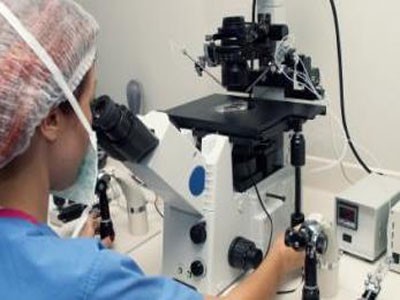Artificial intelligence system helps improve the rate of breast cancer diagnosis

Professor Beck and colleagues presented a new artificial intelligence (AI) system at the International Biomedical Imaging Symposium (ISBI 2016) annual conference competition in Prague in April.
He and his colleagues are developing an artificial intelligence (AI) method that trains computers to interpret pathological images to improve diagnostic accuracy.
The method they use is to teach computers to interpret the complexities seen in these images by "building a multi-layer artificial neural network," Professor Beck said.
This process is thought to be similar to the learning method that occurs in the neocortical layer of the brain, which is the area that produces thought.
At the ISBI 2016 meeting, the research team tested the new AI system. It checks the lymph node image to determine if it can show evidence of breast cancer.
"True intelligence"
The research team began training AI systems with hundreds of training slides. These slides have been labeled by pathologists to show the difference between cancer cells and normal cells.
They then extracted millions of training samples and built a classification model using deep learning. This includes identifying every error in the AI ​​system and then retraining it with more and more difficult samples.
The results of the tests at the annual meeting showed that the AI ​​system automatically diagnosed cancer at a rate of 92%, which was only 4 percentage points lower than the pathologist's diagnostic accuracy of 96%.
“But what's really exciting is that when we combined the pathologist's diagnosis with our automatically calculated diagnostics, the diagnostic accuracy increased to 99.5%,†Professor Beck. “The combination of these two methods makes the chance of misdiagnosis and missed diagnosis greatly reduced.â€
Professor Beck explained that for decades, pathologists have been working to improve and speed up diagnostics using digital imaging and machine learning, but until recently, only when scanning, storage, processing, and algorithms were improved. It is likely to make significant progress.
He said that ISBI's results in the competition show that the AI ​​system is doing "real intelligence", and when you combine it with human capabilities, it will make the diagnosis more accurate and more clinically valuable.
One of the organizers of the competition, Dr. Jeroen van der Laak, head of the Digital Pathology Research Group at Radboud University Medical Center in the Netherlands, said the results clearly show that AI is sketching out how future pathologists use images.
"It is a routine and important task for pathologists to identify whether metastatic cancer occurs through the patient's lymph nodes. Observing under the microscope using conventional methods, by screening millions of normal cells to identify a very small number of malignant cells, It proved to be very laborious. We thought that this task was handed over to the computer and it could be done quite well, and it turned out to be true," Professor Andrew Beck said.
Organic Garlic Granules,Organic Granulated Garlic,Garlic Powder To Minced Garlic,Bulk Granulated Garlic Powder
shandong changrong international trade co.,ltd. , https://www.cragriculture.com